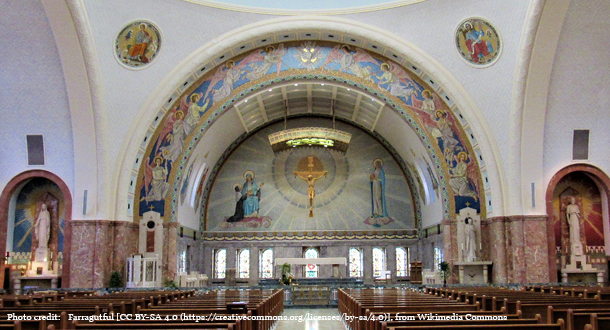 Scripture:
Scripture:
1 John 3:22-4:6
Matthew 4:12-17, 23-25
Reflection:
Often, I think back to the ‘50’s when growing up and attending Mass with my father who liked to go to the first Mass of the day, 6:30 am, where it was easier to get a seat. That was not true of the later Masses when my mother would go. You had to get there early if you wanted to be assured of a seat. That’s not a problem today. Even attending Midnight Mass without a ticket at the Cathedral this Christmas, I had no trouble getting a seat.
I’m not sure what this means, but when I read in today’s Gospel selection: “…And great crowds from Galilee, the Decapolis, Jerusalem, and Judea, and from beyond the Jordan followed him.” (MT 4:25) I wonder where are those great crowds today? Don’t we want to learn today? Don’t we want to be healed? Where do people go to be healed today?
Many years ago I heard the whole gospel message summed up in the simple phrase, that I am lovable and I can love. Now hearing that once was not enough to change my heart, in fact, I need to hear that over and over, even today on a daily basis, I am lovable and I can love. Experiencing love and being loved for me has been a lifetime process. Still today after attending Sunday Mass all my life, and praying and meditating on a daily basis, I often find it hard to believe. You mean, there is a God who created this world I live in, who personally loves me and wants me to be happy, joyous and free? That can’t really be.
While I don’t categorize just the “good” things that have happened to me today as the sign of God’s love for me, I can look over my day and realize that I am truly blessed or loved. I’ve eaten three healthy meals, I’ve spend time with others who share their experiences, and I can come home on a cold winter’s day and sit by the fire with my cat where we both bask in the warmth of not only the heat from the fire, but also in each other’s company. My cat likes to be with me. I am truly blessed.
Help me dear God, to spread that Good News to each and everyone I meet, to the person next to me at Mass, to the beggar on the street, and to all I come in contact with today, then maybe I will learn to look at other measures than the number of attendees at Sunday Mass to see that Your Gospel is still being preached and heard today.
Dan O’Donnell is a Passionist Partner and a longtime friend of the Passionists. He lives in Chicago.


 Scripture:
Scripture: Memorial of St. Elizabeth Ann Seton
Memorial of St. Elizabeth Ann Seton Scripture:
Scripture: Scripture:
Scripture:
 Scripture:
Scripture: